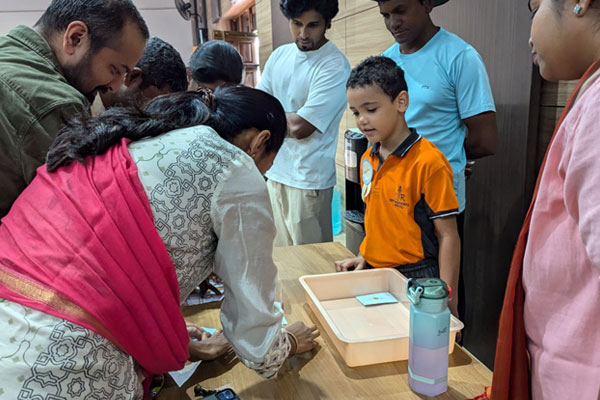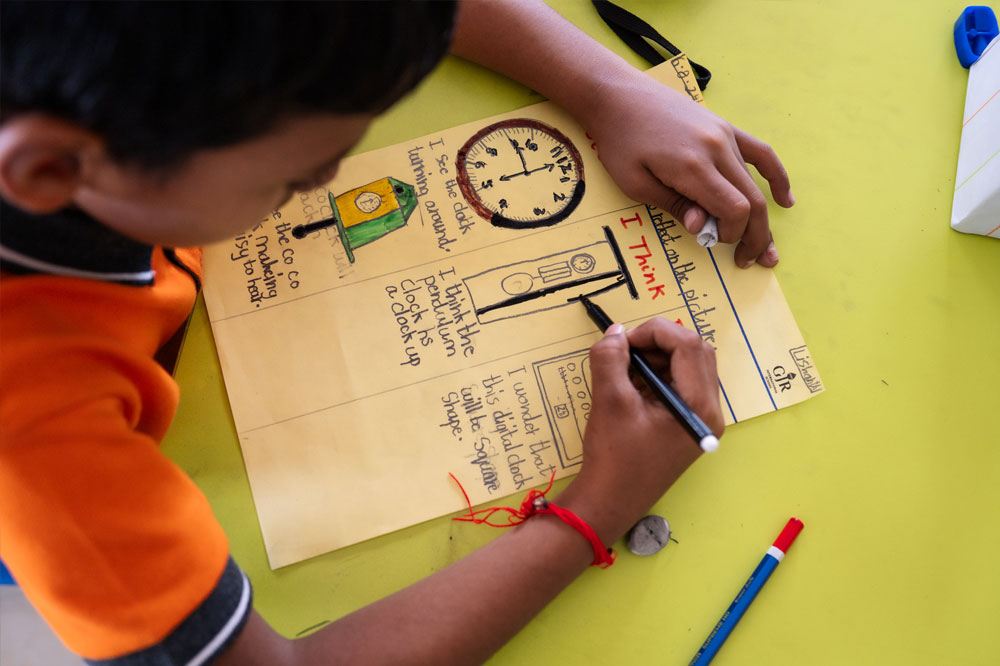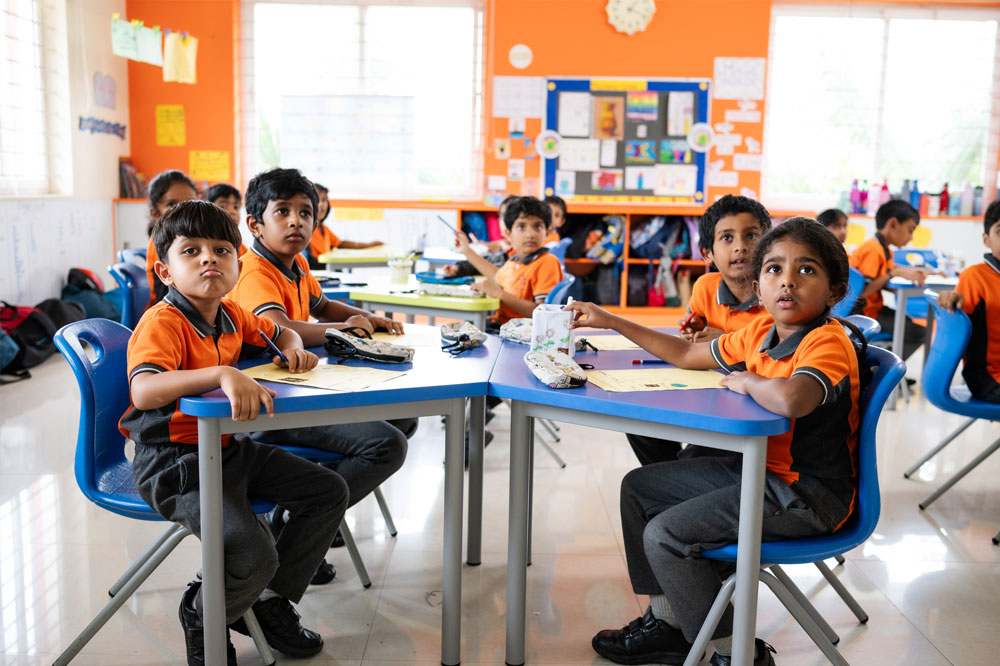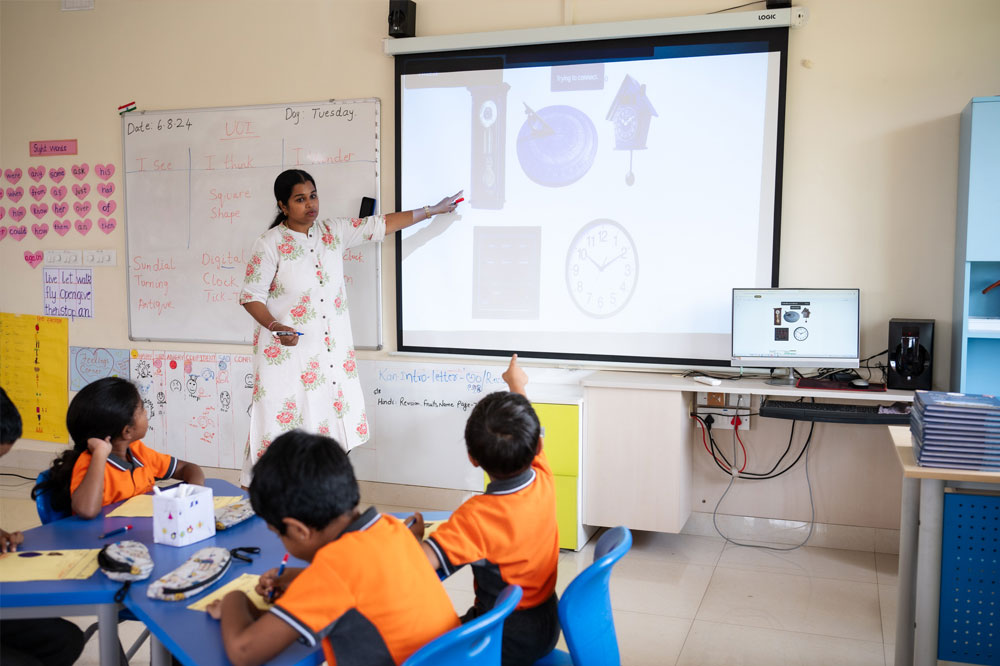Electrifying Extracurriculars at GJRIS
Let your child steal the spotlight at our flamboyant extracurricular events. Radiating energy and joy, these events enhance the social and creative skills of the kids. Spectacular dance and music shows, plays, arts and crafts exhibitions, etc., display the kids’ skills and shape their creative genius. Displaying their skills also helps your child articulate their ideas and opinions in front of the world and boosts their confidence.


Active Bodies, Active Minds
The sports events, along with providing physical development, teach children how to be a team player. When a child is made the captain of a team, they learn to take ownership of the team’s success or failures and work closely to achieve common goals. This instills leadership skills and selflessness among kids. Playing in a team enables children to bond closely, enhancing interpersonal skills


